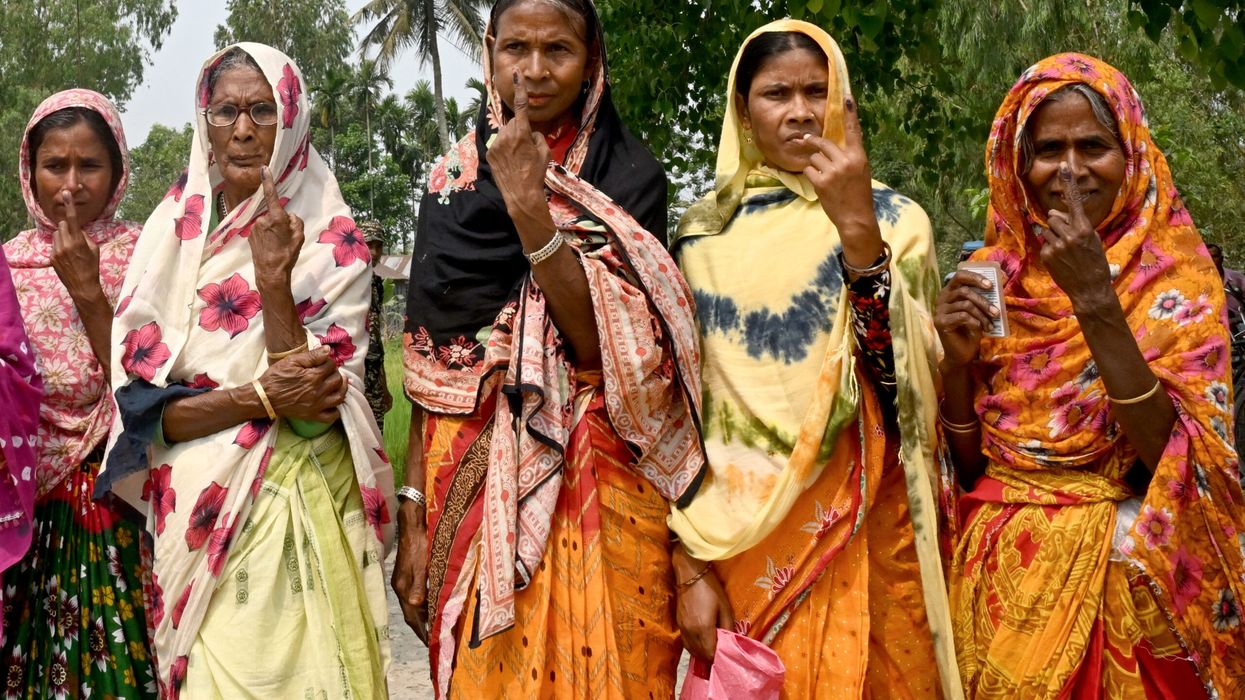India's polling stations opened on Friday as prime minister Narendra Modi seeks a third term, riding on his track record of growth, welfare policies, and Hindu nationalism.
Today marks the biggest phase of the election, with 166 million voters across 102 constituencies in 21 states and territories heading to the polls. Regions voting include Tamil Nadu in the south, Arunachal Pradesh along the China border, and Uttar Pradesh in the north.
The election, featuring Modi's Bharatiya Janata Party (BJP) against a coalition of opposition parties, will unfold in seven phases over seven weeks. The opposition is campaigning on increased welfare and the defence of democratic institutions, accusing Modi of authoritarian tendencies.
Nearly one billion voters are eligible to participate, making this the world's largest electoral exercise. Voting ends on June 1, with results announced on June 4.
As the elections began, voters lined up early, with polls opening at 7 am IST (2.30 am UK time) amid tight security. Assistance was provided for elderly voters to reach polling stations.
"Modi will come back to power, because apart from the religious push, his other work, including on safety and security is good," said Abdul Sattar, a 32-year-old Muslim voter from Kairana in Uttar Pradesh.
Mohammed Shabbir, a 60-year-old driver, expressed that unemployment is his main concern. "Hindu nationalism is not an issue in this election, because even the Hindus are affected by a lack of jobs," he noted.
Polls predict that the BJP will retain a majority, despite widespread concerns about unemployment, inflation, and rural distress. Observers are keen to see if the BJP can exceed its 2019 performance.
"In the next five years, we will take our nation into the top three economies of the world, launch a final and decisive assault against poverty, open up newer avenues of growth... unveil the next generation of reforms, and take a number of pro-people decisions and actions," Modi wrote in the BJP’s election manifesto, which is themed "Modi Ki Guarantee."
On social media platform X (formerly Twitter), Modi urged a large voter turnout, especially among the youth and first-time voters. "After all, every vote counts and every voice matters," he posted.
A victory would make Modi the second Indian leader after Jawaharlal Nehru to win three consecutive terms.
Modi has promoted his previous terms as just the beginning, with his main plans set for his third term. Campaign materials highlight achievements like India's lunar mission and efforts to combat corruption.
Critics accuse Modi's administration and the BJP of favouring hardline Hindu policies at the expense of India's Muslim minority, charges both strongly deny. The opposition coalition argues this election is a critical ideological battle to prevent the BJP from undermining India’s democratic framework.
Rahul Gandhi, leader of the main opposition Congress party, has criticised the BJP for distracting from key issues like jobs and inflation. "Sometimes the PM goes underwater in the ocean and sometimes he is on a seaplane but does not talk about issues," Gandhi said.
(Reuters)





